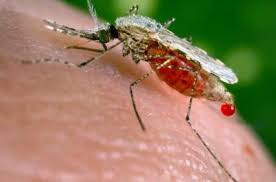
TAKE STEPS TO AVOID MOSQUITOES, COMBAT WEST NILE VIRUS
Norwalk Health Department Launches Annual Larvicide Application Program
In our region, the late summer months bring long days, warm weather, and (unfortunately) mosquitoes carrying the West Nile Virus (WNV). WNV can pass to people through mosquitoes. Most people who get WNV experience no symptoms at all, but the virus can cause serious illness in some people, especially those older than 50 years old. Symptoms include high fever, headache, neck stiffness, vomiting, diarrhea, rash, and/or disorientation.
Reducing the mosquito population is part of the Norwalk Health Department's comprehensive WNV protection strategy. Applying larvicide in storm drains and various standing water locations around the city keeps mosquito eggs from hatching. This week workers from All Habitat Services, LLC, a company engaged by the City of Norwalk, will apply larvicide to those locations.
Chances that a person would become ill from a single mosquito bite are quite low. Still, the Health Department and the Connecticut Department of Public Health encourage residents to take some simple precautions to "Fight the Bite":
Avoid outdoor activity or use extra caution in the early morning and early evening hours, when mosquitoes are most active.Drain all collections of standing water, such as old tires, bird baths, wading pools, garbage can lids, gutters, and cans in recycle bins.Use mosquito repellent when going outside.Wear shoes, socks, long pants, and long sleeves when spending time outdoors.Keep gutters and leaders free of debris.Install or repair window and door screens to keep mosquitoes out of your home.Do not leave swimming pools uncovered without chlorinating and filtering.
Visit these sites for more information on West Nile virus, efforts to control mosquitoes and WNV in Connecticut, and WNV statistics in CT.
Hyperlinks
- WNV information: http://www.cdc.gov/ncidod/dvbid/westnile/wnv_factsheet.htm
- Controlling Mosquitoes in CT: http://www.ct.gov/mosquito/site/default.asp
- CT WNV statistics: http://www.ct.gov/dph/cwp/view.asp?a=3136&q=396672